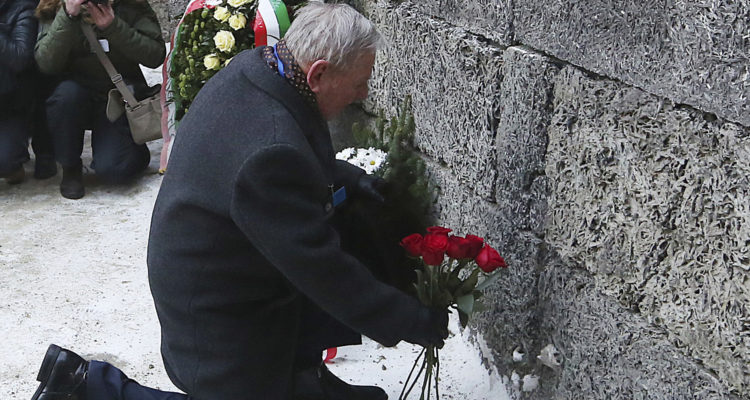Why has there been an international uproar against Poland but virtual silence concerning similar Holocaust-related laws in other Eastern European states?
By: Daniel Krygier, Political Analyst, World Israel News
At the time of this writing, a Polish government delegation is set for talks in Israel concerning Poland’s recently drafted, controversial Holocaust law. The law has been criticized by Israel, the US and the EU for what is perceived as limiting free speech and research pertaining to atrocities committed by Poles against Jews during and after the Holocaust. However, several Eastern European states like Ukraine and Latvia have similar Holocaust-related legislation that has barely been noticed by Israel and the international community.
In fact, one could argue that the suggested Polish Holocaust-related legislation has been inspired by harsher nationalistic legislation in countries like Latvia and Lithuania. To a large degree, the Baltic states equate Nazi crimes with Communist crimes that are blamed on Jewish communists. The legislation in the Baltic states whitewashes anti-Jewish crimes committed by locals and presents Latvia and Lithuania as “pure victims.” In reality, mainly local anti-Semitic collaborators murdered entire Jewish populations in the Baltic countries.
By contrast, Nazi collaboration rates were lower in Poland than in the Baltics and Ukraine. Poland was also one of few Nazi-occupied countries where Nazi Germany did not permit any measure of self-rule. The Polish government went into exile in London and many Poles fought against the Nazis.
So why has there been an international uproar of protests against Poland but virtual silence concerning similar, previous Holocaust-related laws in other Eastern European states? One important reason is that Poland is perceived as the epicenter of the Holocaust. While the death camps were Nazi German, they were mainly located on Polish soil.
‘Racism of low expectations’
Due to its European Union membership, the Free World’s expectations of Poland are far higher than of countries like Ukraine. This racism of low expectations is similar to the contrast between the international community’s anti-Israel obsession compared to largely ignoring severe crimes committed by Arab and Muslim dictatorships. The presence of strong sentiments against Russia in the West explains why the Free World largely ignores revisionist Holocaust legislation in countries hostile to Moscow, such as Ukraine and the Baltic states.
Israel’s close relations with Poland also explains why the reactions from Jerusalem and the Jewish world have been so strong towards the Polish Holocaust law. Poland’s own liberal self-criticism is another reason why Warsaw’s controversial legislation has received much more international attention than far harsher legislation in other Eastern European countries. Many liberal-minded Poles oppose their own nationalist government’s policies and have joined the international criticism. Unlike the Baltic countries, Poland attributes great value to its relations with Israel and the Jewish world. The fact that Poland has sent a delegation to Israel to work out the differences concerning the Holocaust law should be seen as a source of measured optimism for the future concerning Polish-Israeli relations.





